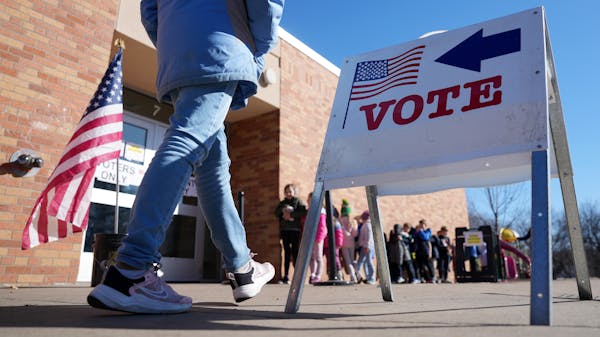Julia Coleman knows she's one of the few elected officials in her party who will openly endorse a Republican other than Donald Trump in Minnesota's presidential primary.
The two-term GOP state senator from Waconia voted for Trump in 2020, but she's supporting former United Nations Ambassador Nikki Haley this year after watching her party lose ground in the suburbs over the last two election cycles, largely due to Trump's style.
"A lot of them privately [support Haley] but they don't want to anger their delegate base," said Coleman of other Republican officials. "People feel a sense of loyalty to the former president."
That's Haley's dilemma in Minnesota, a state where Trump has locked down endorsements from the entire GOP congressional delegation. His near-flip of the state in 2016 brought a new group of Republican activists into state politics.
But Haley's supporters think she has a chance to win a state like Minnesota, which has an independent streak and didn't back Trump in the 2016 precinct caucuses. Fear of a Trump and Joe Biden rematch in 2024 has helped them build quiet support for her behind the scenes, supporters say.
"We are organizing and people are coming out of the woodwork on a regular basis. I am getting calls and texts from people who want to help," said Debjyoti "DD" Dwivedy, a Republican activist who is part of a grassroots group trying to turn out voters for Haley in Minnesota.
She's now the only challenger running against Trump in Minnesota's March 5 presidential nominating contest, after Ron DeSantis, Chris Christie and Vivek Ramaswamy all dropped out. Trump handily won Minnesota's presidential primary in 2020, but he was unopposed on the ballot that year.
In 2016, when Minnesota still used the precinct caucus system to nominate the president, Trump placed third, following Republican U.S. Sens. Marco Rubio and Ted Cruz.
"I'm very bullish on this: Marco Rubio won Minnesota, and he didn't run his campaign on rhetoric but on policy solutions," said Dwivedy. "Haley's politics are based on policies. In this country right now we need less rhetoric and less divide and we need someone who will be grounded on policies."
Neither Trump nor Haley appear to have paid staff on the ground in Minnesota, focusing their attention on Iowa, New Hampshire and the upcoming Feb. 24 Republican primary in South Carolina. Trump beat Haley by more than 30 percentage points in Iowa and by 11 points in New Hampshire.
Polls show Trump leading Haley in South Carolina, where she was governor. Trump's campaign did not respond to a request for comment.
"The margin there will signal a lot. If it's close or if, surprisingly, she should win, that should do a lot to give her campaign a boost," said University of Minnesota political science professor Kathryn Pearson. "If Trump wins big in Haley's home state, I think it's going to be challenge for her to play in any state, including in Minnesota on Super Tuesday."
Haley's supporters are encouraging her to stay in the race until at least Super Tuesday — when 16 states hold presidential primaries — to give voters in more states a chance to weigh in on the race.
"Our party is better when we have a contest, and whoever ends up being the nominee will be better off having to face the voters, stump for votes and do speeches and take questions," said Rep. Kristin Robbins, R-Maple Grove, one of the leaders of the grassroots effort pushing Haley in Minnesota.
She said Haley has 17 delegates to Trump's 33, and it takes 1,215 delegates to win the nomination. On Super Tuesday, 36% of delegates are up for grabs.
Coleman is thinking about her party long-term in backing someone other than Trump in the primary.
"My support for Nikki Haley comes from watching what happened to the election map here under Donald Trump," she said. "I saw the suburbs in the last election start flipping blue and the Republican message start getting lost in the noise."
Coleman outperformed the former president in her district, signaling an openness to a Republican candidate with different communication tactics. She thinks Haley could break through, particularly among women voters.
"I think under Trump we might have a great economy," she said. "But we might lose an entire generation of female voters in the state."
Former DFL Senate Majority Leader Kari Dziedzic dies of cancer at age 62

How the Star Tribune is covering the 2024 election

Fact check: Walz and Vance made questionable claims during only VP debate

In Tim Walz's home city, opposing groups watch him debate on the national stage

